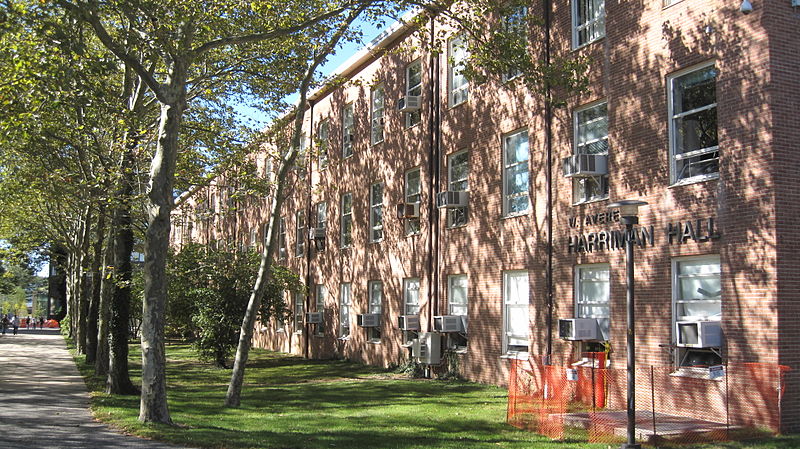Traumatic brain injury, or TBI, is the leading cause of disability among U.S. military personnel and veterans. What’s more, 50% of people with TBI develop spontaneous seizures. If the seizures become recurrent then the condition qualifies as Post-Traumatic Epilepsy, PTE. Now thanks to a 3 year, $750,000 research grant from the Department of Defense and the Army, researchers at Texas A&M will conduct a study on TBI to uncover the molecular and epigenetic mechanism of PTE.
Read MoreTags: Epilepsy, Texas A&M University, Texas, Research Funding, TX, research grant, Southwest Region, new research grant

(Image courtesy of Wikimedia Commons)
Anti-fungal research at New York's Stony Brook University earned $6 million in grants from the National Institute of Health. Dr. Maurizio del Poeta’s breakthrough in attacking deadly fungus came from a recent research project that yielded an unexpected result that might lead to a vaccine. He and his team were searching for a gene that would metabolize a fungal sphingolipid. Instead, the gene he mutated caused mice that were exposed to it to become resistant to fungal infections. In an article on the Stony Brook University’s news site, Dr. Poeta said , “We think that this discovery will open the road to a new vaccination strategy against fungi.”
Read MoreTags: Northeast, New York, Stony Brook University, East Coast, NY, NIH grant, new research grant, SunySB, Fungal Infections, BioResearch Product Faire™, BioResearch Product Faire, NIH awards 2017, 2017 research funding
Part of a new $37.5 million life science grant from the Defense Advanced Research Projects Agency has been made available to researchers at the University of California, Los Angeles. The research funding will be shared with fellow science researchers at the University of Pennsylvania to build and test wireless implantable devices that can detect memory deficits caused by injury and try to restore normal function. The purpose of these devices is to help improve brain function for service members, veterans and others after traumatic brain injury or disease.
Tags: 2014, CA, University of California Los Angeles, new research funding, California, Los Angeles, LAVS, UCLA, Biotechnology Vendor Showcase, new research grant
Researchers at the University of Southern California recently received $10.3 million in life science funding to help support the Southern California Clinical and Translational Science Institute. The project leader is Dr. Thomas Buchanan of the University of Southern California’s Keck School of Medicine, and the funding organization within the National Institutes of Health is the National Center for Advancing Translational Sciences. The new science research funding will help researchers and doctors improve medical treatment for patients in urban areas.
Tags: 2014, CA, University of Southern California, new research funding, Southwest, USC, Los Angeles, BioResearch Product Faire Event, new research grant
The University of Southern California recently received a new research grant worth $5.6 million from the National Institutes of Health for the USC Norris Comprehensive Cancer Center. The administering organization was the National Cancer Institute, and the project leader is Dr. Stephen Gruber, a Professor of Medicine at the Keck School of Medicine and the H. Leslie Hoffman and Elaine S. Hoffman Chair in Cancer Research.
Tags: 2014, CA, University of Southern California, new research funding, USC, Los Angeles, BioResearch Product Faire Event, new research grant
Duke University recently received $10 million in science research funding from the National Institutes of Health to create an Antibacterial Resistance Leadership Group to conduct research lab investigations into the causes of antibacterial resistance. The new research grant was awarded in fiscal year 2014 to the department of internal medicine at Duke University Schools of Medicine and project leader Dr. Vance Fowler.
Tags: 2014, Duke University, North Carolina, new research funding, Southern, BioResearch Product Faire Event, Durham, NC, Duke, new research grant

